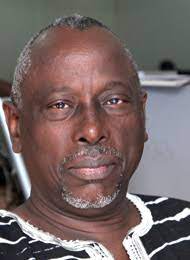In the next three years all the countries making up the East African Community will have held general and presidential elections. Already there is a great deal of talk - even concern, especially by outsiders - about who will contest and who should not.

In the next three years all the countries making up the East African Community will have held general and presidential elections. Already there is a great deal of talk – even concern, especially by outsiders – about who will contest and who should not.
These concerns are often couched in what appears to be reasonable terms – adherence to democratic practice, respect for the constitution and sticking to term limits, and so on. In reality, however, their focus is on individuals not on issues that elections are decided on. The emphasis and tone of all the talk seems to be about barring some individuals. It is not about giving the people better services or making the system of elections better. In my humble opinion, this is missing the point about elections, why they are held and won or lost. It actually skews the debate from the real issues of democracy to undue attention on personalities.
The question should be about why political parties and their leaders get elected in the first place and are returned in subsequent elections. In all democracies the electability and continuity of governments depends on a number of factors. The first is whether they have a programme for governing the country effectively and whether they are capable of delivering it. If they have been in power, the test is whether they have delivered on election promises, also known as manifesto.
Secondly, governments and their leaders are judged on how they have solved challenges the country faces and laid a strong foundation for a better future. For instance, people make decisions based on the government’s record on such things as growing the economy, creating jobs, raising citizens’ living standards, and providing better education and health care. They also consider if the environment within which they live and work is secure and stable.
If they have done all these things, then they surely must have the trust and confidence of the citizens.
That is what counts and makes an individual, party or government electable. It is not how long they have been in power that matters.
That is why it was normal for President Barack Obama to congratulate German Chancellor Angela Merkel on winning elections for a third time (in 2013) when she was in Washington last week. It was normal for him because that is what happens when a leader delivers on pledges and meets the expectations of the people.
If this is true for Merkel and Germany today and for Tony Blair and Britain sometime ago, or indeed any other person in another place, it should be just as correct for Paul Kagame in Rwanda or another person in a different country. The test and reasons for being returned to power should be a universal standard, equally applicable to all and not one reserved for a few depending on where on this earth they live.
And talking about Rwanda, what is the situation like regarding electoral pledges and the general performance of government that would, in normal circumstances, warrant continuity?
The President and his government have done all the things mentioned above. The economy has been growing steadily. Rwandans are progressively moving out of poverty and beginning to enjoy rising living standards. They have greater access to education and healthcare. They are freer and enjoy more security than at any time in the history of the country.
In addition, Rwandans have chosen an all inclusive governance system in which they have a real say in how they are governed.
Clearly the President and his government have met their part of the bargain in the election contract with the people. Rwandans, too, feel that the President has fulfilled his pledges and taken them some distance on the road to development. That is why they approve of the way they are governed, which they have expressed many times in different ways.
First, they have shown this in the massive endorsement of President Kagame in the two previous elections.
Secondly, they have said they trust their President and other national institutions, such as the Police, the Rwanda Defence Force, the Judiciary and many others. Various independent national and international surveys have confirmed this high level of trust. For instance, according to the findings of a recent study by the Institute for Policy Analysis in Rwanda, 99 per cent of Rwandans trust President Kagame. These findings compare favourably with others by such organizations as the Gallup Poll and Legatum Institute.
Going by the reasons why political leaders and their parties are returned, President Kagame and the Rwanda Patriotic Front (RPF) have met all the criteria for being returned should they wish to contest any future election. They have met their promises, have moved the country forward, and enjoy the trust and confidence of the people and even of the international community.
In normal circumstances and where rules apply equally and fairly, this fact should be the only standard to determine whether an individual or party should seek to continue governing the country. It is what happens elsewhere. There is no reason why Rwanda should be the exception.
jorwagatare@yahoo.co.uk


